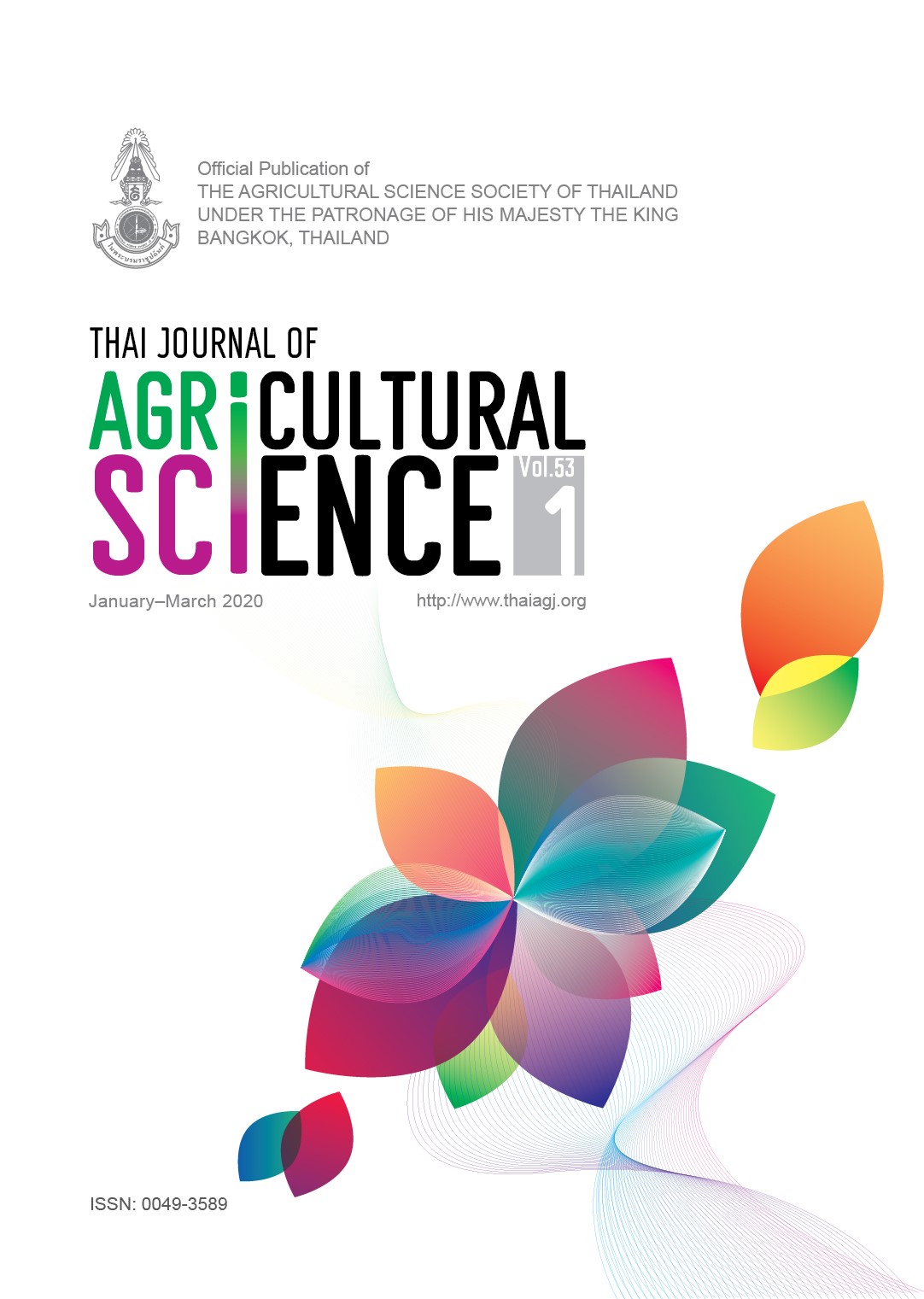Fuel Properties of Some Native Tree Species for Biomass Energy in Thailand
Main Article Content
Abstract
Thailand is a tropical country and rich in plant species diversity. At present, most of the forest plantations in Thailand are established using exotic species. Many native species are expected to have potential as biomass energy but information on wood yield, coppicing ability and fuel properties is lacking. This study determined some fuel properties of seven native species (Albizia lebbeck, Albizia procera, Broussonrtia papyrifera, Cassia siamea, Combretum quadrangulare, Melia azedarach and Trema orientalis). All species were analyzed for wood density, higher heating value (HHV), and components of the proximate and ultimate analysis. Results showed highly significant differences (P < 0.001) in all but one trait (P < 0.05 for hydrogen content) among the species. The HHV was in the range 4,285–4,653 kcal/kg (17.9–19.5 MJ/kg) which was comparable to some commonly used bioenergy species such as Eucalyptus and Leucacena. Three species (T. orientalis, M. azedarach and B. papyrifera) had high HHV, high volatile matter and low ash content, suggesting their suitability for biomass energy. The results indicated the potential of native plant species in Thailand for use as bioenergy.


